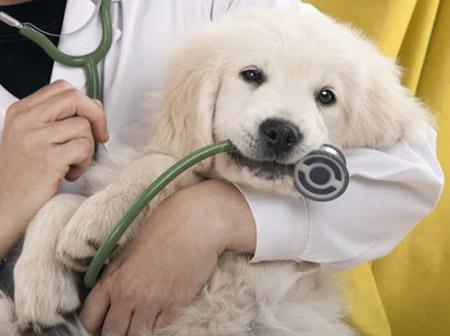At the heart of every thriving marine exhibit lies a dedicated team committed to the well-being of its inhabitants. The New England Aquarium’s animal health team plays a critical role in ensuring the vibrant sea creatures under their care remain healthy and active. In this article, we take an exclusive look behind the scenes of routine checkups, revealing the meticulous processes, advanced techniques, and compassionate expertise that keep aquatic animals safe and strong. From daily assessments to specialized treatments, discover how this skilled team safeguards the health of the aquarium’s diverse species.
The Importance of Routine Health Screenings in Marine Life Care
Routine health screenings are a cornerstone of proactive marine animal care, allowing our dedicated team at New England Aquarium to detect subtle changes before they escalate into critical issues. Through regular evaluations-including physical exams, blood tests, and behavioral monitoring-our veterinarians can track the wellbeing of each specimen, ensuring early intervention and tailored treatment plans. These screenings not only safeguard individual animals but also maintain the overall health of entire populations within our exhibits, promoting a thriving and balanced ecosystem.
Key components of our routine screenings include:
- Visual health assessments: Evaluating skin coloration, movement, and feeding patterns.
- Diagnostic imaging: Using ultrasounds and X-rays to identify internal concerns.
- Laboratory tests: Blood work and microbiological analyses to detect infections or nutritional imbalances.
- Environmental monitoring: Checking water quality parameters crucial for marine life vitality.
| Screening Type | Frequency | Primary Benefit |
|---|---|---|
| Physical Exam | Monthly | Early detection of visible ailments |
| Blood Analysis | Quarterly | Nutritional & organ function insight |
| Behavioral Review | Weekly | Identify stress or discomfort |
| Water Quality Test | Daily | Maintain optimal living conditions |
Inside the Daily Practices of the New England Aquarium’s Veterinary Team
Each day at the New England Aquarium, the veterinary team embarks on a meticulous routine designed to ensure the health and well-being of their diverse marine residents. Their mornings typically commence with detailed health assessments, involving physical examinations and behavioral observations. These checkups are crucial for detecting subtle signs of distress or illness early on. The team utilizes advanced diagnostic tools-from ultrasound machines to blood analyzers-allowing them to tailor treatment plans that address the unique needs of species ranging from giant sea turtles to vibrant coral reef fish.
Beyond direct animal care, the veterinary professionals collaborate closely with aquarists and nutritionists to monitor diets, enrich environments, and manage stress levels. This multi-disciplinary approach reflects in their daily procedures, which include:
- Administering preventive vaccinations and parasite control
- Updating medical records with real-time data tracking
- Providing emergency care drills and training
- Conducting water quality analyses to maintain optimal habitats
| Care Activity | Frequency | Importance |
|---|---|---|
| Physical Exams | Daily | High |
| Diagnostic Testing | Weekly | Medium |
| Hydration Therapy | As Needed | High |
| Enrichment Sessions | Daily | Medium |
Expert Recommendations for Supporting Aquarium Animal Wellness
Maintaining optimal health for aquarium inhabitants requires a combination of proactive care and vigilant observation. Our animal health team emphasizes the importance of providing species-specific environments that replicate natural habitats as closely as possible. This includes controlling water parameters such as temperature, pH, and salinity, which are critical for physiological balance. In addition, varied and nutritionally balanced diets tailored for each species support the immune system and overall vitality. Regular cleaning routines and habitat enrichment are equally crucial to minimize stress and promote natural behaviors.
To empower aquarium enthusiasts and professionals alike, our experts suggest integrating the following daily and weekly practices:
- Visual health checks: Look for changes in coloration, behavior, or appetite.
- Water quality tests: Monitor ammonia, nitrite, nitrate, and oxygen levels.
- Record keeping: Maintain detailed logs of feeding, cleaning, and any health anomalies.
- Stress reduction techniques: Limit bright lights, excessive noise, and overcrowding.
| Parameter | Optimal Range | Frequency of Testing |
|---|---|---|
| Temperature | 24-28°C | Daily |
| pH Level | 6.8 – 7.5 | Weekly |
| Ammonia | 0 ppm | Weekly |
| Nitrate | < 20 ppm | Weekly |
To Wrap It Up
As routine checkups continue to play a vital role in the care and well-being of the New England Aquarium’s diverse animal residents, the dedication and expertise of the animal health team remain at the forefront of these efforts. Through regular monitoring and preventive care, they ensure that each creature-from the smallest invertebrate to the largest marine mammal-receives the attention necessary to thrive. These behind-the-scenes moments not only safeguard animal health but also deepen our understanding of marine life, reinforcing the Aquarium’s commitment to conservation and education. Stay tuned for more insights into the ongoing work that helps protect and preserve the ocean’s most fascinating inhabitants.










